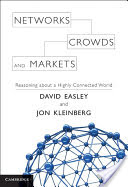Celebrated British writer Roald Dahl said, “If you are going to get anywhere in life you have to read a lot of books.”
Springboard’s overarching goal is to empower people to keep learning and developing their professional skills. We recently asked some of the experts speaking at Springboard Rise, our first data science and UX design summit, to share the career and professional development books that have inspired them. Some are directly tied to data science and UX, while others are more broadly focused on personal and career development. But they all have insightful takeaways.
(Here are more recommendations for user experience, data science, and artificial intelligence books.)
Our Favorite Personal Development & Career Books

“Creativity, Inc.: Overcoming the Unseen Forces That Stand in the Way of True Inspiration” by Ed Catmull and Amy Wallace
Recommended by Joann Wu, senior director of consumer design at LinkedIn:
“It’s a career book about creativity in business and answers the question, ‘What does it mean to manage well?’ It includes many great ideas about leadership, from fearless ideation and collaboration to tireless communication. And the most interesting part for me in this book is it talks about how most of us will agree that honesty, learning from mistakes, and flexibility are all essential for solving problems and creativity. Yet, we naturally avoid candor, failure, and change. Likewise, most ‘geniuses’ discover their vision through struggles over time, getting lost, and facing tremendous uncertainty; yet, most of us are uncomfortable to embark on a process without knowing the answer.”

“Playing Big” by Tara Mohr
Recommended by Mansha Mahtani, data scientist at Instagram:
“‘Playing Big’ is a fantastic professional development book which gives concrete ways to overcome self-doubt and identify your calling. It makes the interesting point that our education systems today reward certain ‘good student’ habits that often do not translate to career success. Regardless of the stage in your career, this book encourages you to introspect and understand how to leverage your strengths to drive change.”

“Networks, Crowds, and Markets: Reasoning About a Highly Connected World” by David Easley and Jon Kleinberg
Recommended by Henry Modisett, design lead at Quora:
“This book is dense and rooted in mathematics, but I think anyone working on the internet would benefit from reading this. I would especially recommend reading the chapter about network effects (systems where increasing the number of participants makes the product better for everyone). This is an extremely important concept if you ever want to work on or build your own product at a large scale!”
(Henry’s team offers more book recommendations here.)

“Hooked: How to Build Habit-Forming Products” by Nir Eyal, with Ryan Hoover
Recommended by Andre Martins, product manager and UX consultant:
“The intersection between UX and psychology is key for great products. In this book, Nir Eyal presents a framework to understand, experiment, and define habits which can drive customer retention.”

“Business Analysis Using Regression” by Robert A. Stine, Dean P. Foster, and Richard P. Waterman
Recommended by Aarthi Srinivasan, director of product management at Target:
“I am biased as I also took his class and used his book practically with the JMP statistics tool to make things easy. This book provides a good foundation of statistics that made it easy to follow Andrew Ng’s detailed courses and also his draft chapters on machine learning yearning.”

“Don’t Make Me Think” by Steve Krug
Recommended by Andre Martins:
“If you’re just starting on UX, this is definitely the first book I recommend. Steve Krug presents in a simple way how to think about user experience and user-centered design.”

“Lean UX” by Jeff Gothelf
Recommended by Andre Martins:
“This book represents a key moment for the UX discipline. It presents how to optimize the different strategies and artifacts to get results faster and move from deliverables-focused into results-focused work.”

“Machine Learning Yearning” by Andrew Ng
Recommended by Drishan Arora, senior data scientist at Google:
“This book is an exceptional compilation of the best practices and common pitfalls in machine learning. It presents a ‘style’ or ‘rules’ for solving data science problems, which is remarkably valuable in applying ML to building products. I would recommend this if you are interested in making more informed decisions about data science problems, without having to go through the arduous task of learning these practices from scratch by yourself.”

“Sprint: How to Solve Big Problems and Test New Ideas in Just Five Days” by Jake Knapp, John Zeratsky, and Braden Kowitz
Recommended by Joann Wu:
“The book takes you behind the scenes with some of the most fascinating startups and provides readers a practical guide to answering critical business questions. It’s a very well written book with a clear balance between strategic and tactical. Reading the book gives you the overview of a condensed version of the real-world product design/problem-solving process: map, sketch, decide, prototype, test.”

“The Design of Everyday Things” by Donald Norman
Recommended by Drishan Arora:
“‘The Design of Everyday Things’ is a classic which makes you revisit what you know about the things you see around you every day, and how they came to be. This book, albeit not entirely associated to data science, is an excellent start to thinking from a product perspective.”
Crazy for content? Springboard has created several free ebooks. Check out our “Beginner’s Guide to Careers in UX Design” here.



